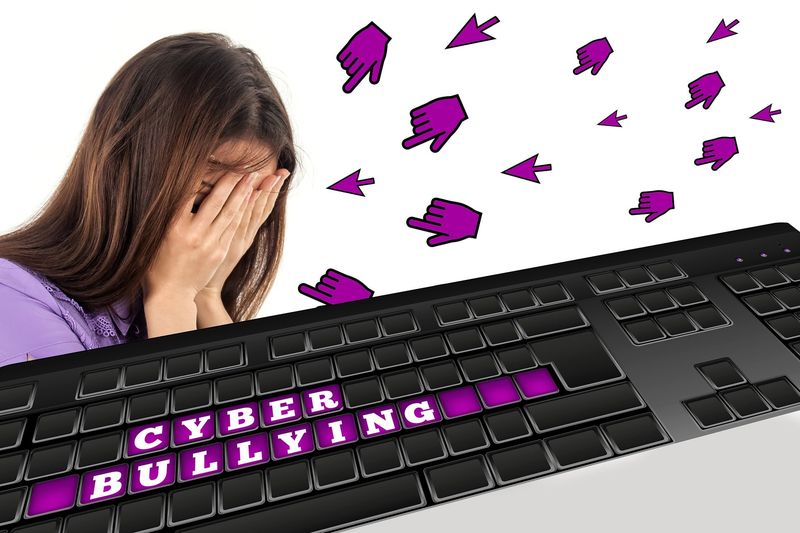
Merriam-Webster defines cyberbullying as “the electronic posting of mean-spirited messages about a person” that is “ often done anonymously.”
Cyberbullying most commonly occurs on social media platforms like Facebook and Instagram.
That said, it can also happen over text, by email, and in online forums and chat rooms.
Furthermore, cyberbullying can happen at any time. In fact, it can even happen at work.
If you’ve been the target of cyberbullying at work, it is critical that you get legal help.
Examples of Common Workplace Cyberbullying Situations
Cyberbullying can take many different forms. Here are a few:
- John’s co-worker threatens him on Facebook after he learns that John received a promotion to manager.
- Barbara’s supervisor sends her demeaning, rude text messages after work.
- One of Dave’s subordinates records him falling at work after getting sick from food poisoning and then posts it on Instagram as a joke.
In each one of these instances, the victim can feel powerless. And it’s not surprising why. Cyberbullying in the workplace is both a serious and novel phenomenon.
Unlike traditional bullying, which can take place only in limited situations and times, cyberbullying can occur 24 hours a day, seven days a week.
This makes it impossible for the victim to escape the torment.
In addition, cyberbullying is generally more public, since threatening or targeting posts can be posted and shared across the internet instantaneously.
Even one thoughtless tweet or message can lead to devastating personal and public consequences.
Paradoxically, however, cyberbullying can be completely anonymous and hard to track down.
Yet the effects of cyberbullying can last for years.
Cyberbullying in the Workplace Statistics
Because cyberbullying in the workplace can be so difficult to monitor, it’s distressingly common.
A 2016 study by the University of Sheffield and Nottingham University revealed that approximately 80% of the participants involved had experienced cyberbullying in the workplace in the six months preceding the study.
The effects of cyberbullying in the workplace are serious.
Cyberbullying can cause stress, anxiety, and depression. It reduces workplace productivity, and it can also negatively impact workplace culture and increase burnout and turnover.
Workplace Cyberbullying: Legality
Although there is no federal law that prohibits cyberbullying specifically, cyberbullying often overlaps with illegal conduct.
For example, cyberbullying can constitute illegal discrimination or harassment.
Cyberbullying can also result in federal stalking charges or defamation charges. Approximately half of the 50 states have adopted some kind of anti-cyberbullying law.
If you’re suffering from cyberbullying, it’s important for you to take the following steps:
- Calmly tell the bully to stop;
- Keep a paper trail;
- Report the cyberbully to HR or your supervisor;
- If the cyberbully physically threatens you, contact the police.
In addition, you should also consider contacting an attorney.
We Can Help You Defend Yourself from Workplace Cyberbullies
Here at the Federal Employment Law Firm of Aaron D. Wersing, PLLC, we are passionate about protecting federal employees.
Our practice focuses specifically on federal employment law; we’re familiar with all kinds of federal employment claims, including cyberbullying.
If you’re experiencing cyberbullying in the workplace, we can help you understand your legal options and what you can do to protect yourself.
We know that hiring an attorney can be a significant financial burden. However, we don’t want money to keep you from contacting us.
Don’t let the trauma of cyberbullying continue. Reach out to us today.

